But despite many in the industry calling for greater use, Oakes says modular take-up has remained slow and only accounts for a very small percentage of housing delivery at the moment.
A recent report from Savills predicts the proportion of new homes built using MMC will increase from the current 6-10% to 20% of the market share in the coming years. However, in order to meet not only the UK’s housing delivery target but also the aim of becoming carbon neutral by 2050, this has to increase.
Breaking the stigma
According to Oakes, the industry has been slow to accept MMC. There is a stigma around modular and a general reluctance to change as people are working in the traditional way.
“There is a perception that the product is low quality and has no integrity of design, but that simply isn’t the case now,” he explains. “There is a real lack of knowledge within the sector about modular and this reluctance to learn is stunting innovation and growth in the residential sector – and ultimately preventing us from building more homes more quickly.”
Unlocking affordable housing schemes
According to Oakes, the pandemic has begun to break this stigma as developers and landowners are starting to consider how to move forward. What’s more, local authorities are looking towards modular building as a way to unlock residential sites to deliver affordable housing, Oakes says.
“One such project that we’re currently working on is with Bassetlaw District Council. The modular housing scheme is the first MMC project for the authority and will deliver 120 homes in Nottinghamshire,” he says.
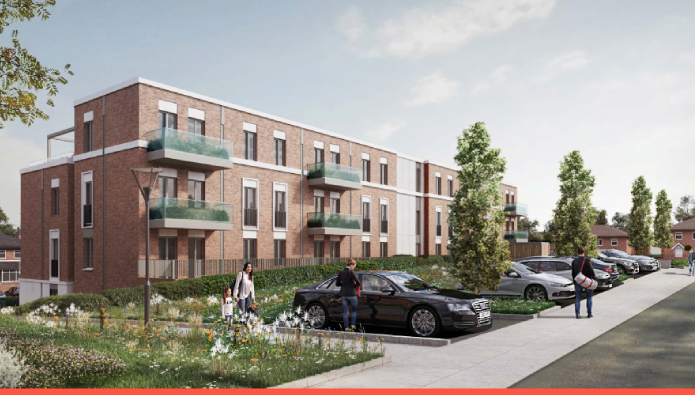
“Working closely with Faithful+Gould – the project/commercial manager and principal designer for the scheme – this project marks our tenth modular scheme. We are responsible for looking at the flood risk, drainage, transport, and structural design as well as providing specialist MMC advice.”
Andrew Prickett, director and head of residential at Faithful+Gould, adds: “The modular approach will help us deliver the Radford Street development quicker, more cost effectively, and crucially, at a consistent and high quality.”
“By combining Faithful+Gould’s knowledge of the modular housing sector with our exceptional approach to delivery, we can help the Council deliver on its vision, and the UK reach its target of 300,000 new homes each year.”
Delivering high-quality homes
Oakes goes on to say: “It’s clear that more and more decision-makers are waking up to the fact that modular housing is an incredibly viable option for a post-pandemic recovery. But we still need to go further.”
“Schemes such as the one with Bassetlaw District Council help deliver modern, innovative and energy efficient housing schemes that improve neighbourhoods, support local jobs as well as the council’s ambition to increase the amount of housing.”
However, this is needed on a wider scale to really ‘make a dent’ in the 300,000 new homes target set by the government.
He concludes: “The scale of our work has definitely increased – from roughly 10 units on a development to almost 700 on our most recent scheme – so I just hope we continue to see action rather than all the talk of pre-Covid times.”
TopHat delivers 20 energy-efficient homes for Medway Council
In other news, modular housing firm TopHat has completed the delivery of 20 affordable homes for Medway Development Company in Chatham, Kent.
All of the two-bedroom homes, which were delivered on an infill site on White Road, will be made available for affordable rent and operated by housing association mhs homes. The homes were manufactured along production lines at TopHat’s South Derbyshire factory. Once complete, the homes were transported to site and installed in a matter of days.
By taking the majority of the build stage off-site, TopHat was able to complete the scheme in half the time of traditional methods of construction, helping to speed up the delivery of much-needed affordable housing for the local community.
Its modern methods of construction (MMC) solution has resulted in the homes having less embedded carbon than one traditionally built. Solar panels have been integrated into the design of the homes to provide residents with clean, low-cost electricity. Due to the high levels of airtightness, TopHat says the homes will achieve at least a ‘B’ energy performance certificate rating – making them more energy-efficient than 92% of new builds in the UK.
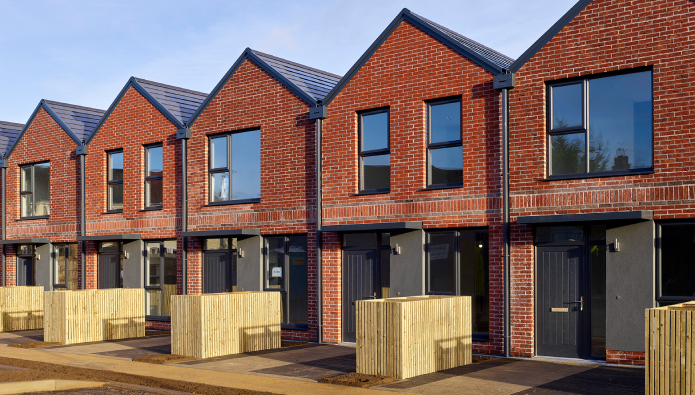
Andrew Shepherd, managing director at TopHat, comments: “Climate change is an ever-present issue affecting much of Britain’s many industries.”
“As a sector that contributes almost 40% to UK emissions, there is an urgent need for a step-change in the way the built environment delivers homes. Off-site manufacturing provides the housebuilding industry with the ability to significantly cut emissions.”
The homes were delivered under a turnkey construction contract, providing cost and time certainty to the client. It’s due to these efficiencies that an increasing number of councils and housing associations are opting to deliver schemes using MMC.
Homes England has been championing modular housing as a solution to speeding up the delivery of affordable housing across the UK. Last year, the government’s national housing agency announced that housing associations looking to sign deals under the new £11.5 billion Affordable Housing Program will have to commit to using MMC to deliver at least a quarter of their pipelines.
Shephard continues: “Through Homes England, the government has recognised the need to diversify the supply of new affordable housing for quite some time now. The scheme on White Road, delivered as part of our long-standing relationship with Medway Council, demonstrates the efficiencies our accredited method of delivery can afford clients - which span from developers, councils and housing associations.”
Councillor Alan Jarrett, leader of Medway Council, adds: “I am pleased that these new affordable, modular homes have been completed. There is a huge demand for new houses in Medway and we remain committed to ensuring our residents have a great choice of both affordable and luxury homes.”
“The White Road development showcases the triumphs of off-site manufacturing and it is pleasing that the homes have been built without producing significant carbon emissions. I wish residents all the best in their new homes.”
Premier Modular sold to Cabot Square to support expansion
Cabot Square Capital has acquired a majority shareholding in Premier Modular, an off-site construction specialist.
The investment will support the strategic growth of Premier’s modular hire business and its permanent off-site division.
Independently owned for 25 years, London-based Cabot Square is a specialist provider of investment capital to European companies with a particular focus in the financial services, property and infrastructure sectors.
Its portfolio includes NetZero Buildings, an off-site manufacturer of energy-efficient buildings for the public sector, and Public Sector Plc, a specialist asset manager which partners with local government and housing providers.
Established in 1956, Premier Modular provides temporary and permanent off-site building solutions across the infrastructure, construction and residential sectors. It has achieved strong growth year-on-year and recently announced profits of more than £10 million for the year ending June 2020.
High-profile schemes delivered by Premier include a £7 million contract for a 62-bed ward building at St Peter’s Hospital in Chertsey, and a number of apartment schemes are now on site following its expansion into the residential sector last year. It also has a multi-million-pound contract for the construction of Covid-19 testing sites across the UK to support the government’s response to the coronavirus pandemic. Keith Maddin, partner at Cabot Square, comments: “MMC and offsite manufacturing are revolutionising the construction industry. We are seeing significant growth as more public and private sector clients develop a deeper understanding of the speed, quality, cost, environmental and social benefits of moving construction into a controlled factory setting.”
“Premier is a high-performing, profitable business, which manufactures high-quality building solutions and continues to expand its hire fleet – already one of the newest in the UK. We are excited to partner with its outstanding management team and support the business on the next phase of its growth, including sector and geographical expansion.”
David Harris, managing director of Premier Modular, adds: “This new investment brings even greater stability and continuity to our business which will benefit our colleagues, customers, supply chain and strategic partners. We are looking forward to working with Cabot Square and a highly successful and productive business partnership.”



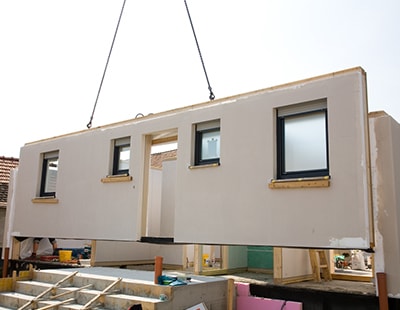


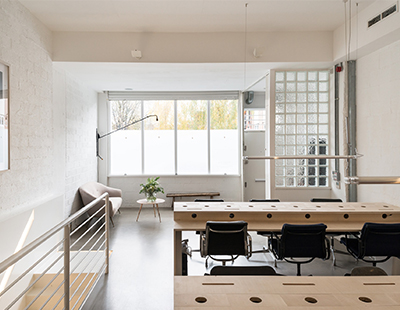
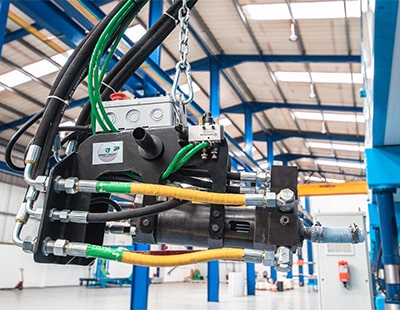
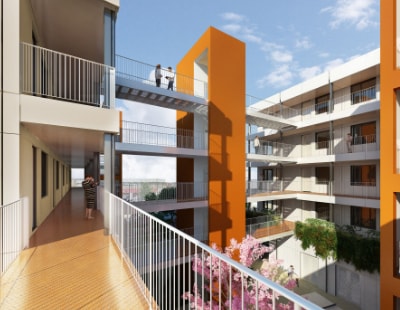



.png)









Join the conversation
Be the first to comment (please use the comment box below)
Please login to comment